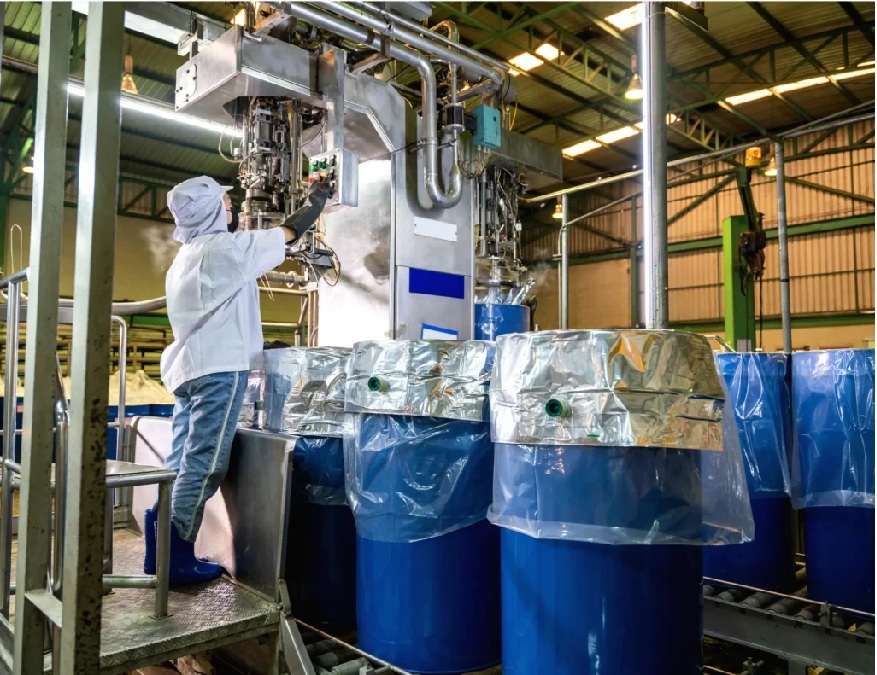
Due to weather introduction, outdoor surfaces—including patios, decks, driveways, and sidewalks—struggle with extraordinary wear and tear. As dirt, rottenness, mildew, algae, oil stains, and other impurities construct up over time, these surfaces start to seem worn out and dirty.
Pressure washing with chemicals added to the arrangement can significantly improve the cleaning preparation and effectively return open air surfaces to their previous state. In contrast, pressure washing alone is amazing at removing surface-level junk.
Chemicals utilized in pressure washing are made to break down and lift grease, deep-set stains, and other challenging debasements that are as well difficult to expel with just water. This post will examine the tips to use pressure washing chemicals, how they operate, and how they may be used to repair a run of outdoor surfaces.
The Operation of Chemical Pressure Washing
High-pressure water is utilized in pressure washing to expel dirt and grime from surfaces, but indeed the strongest pressure washers cannot expel stubborn stains like mildew, algae, and oil. Chemicals for pressure washing come into play here. These fixings are outlined to break up and break down rigid materials so the weight washer can more easily remove them.
Chemicals used in pressure washing work by combining emulsifiers, disinfectants, and surfactants. Surfactants encourage deeper penetration of the cleaning solution into porous surfaces such as wood and concrete by lowering the surface pressure between the debris and water. Emulsifiers help within the scattering of oils and greases, empowering them to be washed away. Fungicides and shape inhibitors are among the chemicals that are utilized to stop mold and mildew from growing back after cleaning.
The Significance of Maintaining Exterior Surfaces
Outdoor surfaces are subject to ongoing exposure to organic debris, contaminants, and moisture, which can eventually cause damage. Beyond aesthetics, unclean outdoor surfaces can become dangerously slick, especially if they contain mildew, moss, or algae. These surfaces look better and last longer when cleaned regularly using pressure washing chemicals. They also increase safety.
1. Stopping the Decline
Outside surfaces can sustain harm from mold, mildew, and algae because they trap moisture and accelerate the deterioration of materials such as stone and wood. For instance, uncleaned hardwood decks can start to decay, and concrete can weaken and discolor with time. The life of outdoor surfaces is extended by pressure washing with chemicals that contain mold and mildew inhibitors to stop these growths from taking root.
2. Increasing Security
Outdoor surfaces secured in moss, algae, or mildew can become perilously smooth, endangering the security of anybody walking on them. This issue is more common on pool decks, driveways, and walkways. By utilizing pressure washing chemicals to remove these impurities, you’ll make strides in the surface’s traction and lower the chance of slips and falls.
3. Improving Visual Appeal
The way outside zones see contains a huge impact on a house or business’s overall control appeal. Weathering can lead to discolouration, oil stains, and soil accumulation over time, giving the impression that the property has been ignored. When endeavoring to raise a property’s value, it is particularly crucial to form outside surfaces that show up clean and well-maintained. This may be accomplished with a thorough cleaning using pressure washing chemicals.
Chemicals Used in Pressure Washing: Types
Pressure washing chemicals come in a few varieties, each planned to tackle distinctive sorts of stains and outdoor surfaces. Selecting the suitable item for the work is significant to getting the most prominent results.
1. Grease traps
Degreasers are chemicals planning for pressure washing driveways and garage floors that are basically made to expel oil, grease, and other car liquid stains. By dissolving oil molecules, these compounds encourage the pressure washer’s capacity to remove them. Degreasers work especially well on asphalt and concrete surfaces where car spills happen frequently.
2. Remover of Mold and Buildup
Shape and mildew removers are a must for outside surfaces exposed to dampness, such as decks, patios, siding, and pool areas. The chemicals kill mildew and shape, inhibiting their regrowth after cleaning. Bleach and oxygen-based cleansers are commonly included in mold removers, and they are both very good at removing organic growths from porous surfaces like stone and wood.
3. Use of Alkaline Cleaners
Alkaline cleaners are versatile pressure-washing agents that efficiently dissolve oil, filth, and grime. They are frequently used to clean concrete, brick, and siding. Alkaline cleaners function by counteracting the acids in organic materials, such as food stains and bird droppings, so they are simpler to remove with water.
4. Remover of Rust and Stains
Rust and stain removers are known as pressure-washing chemicals designed to address discoloration brought on by rust, hard water, and other minerals. These chemicals are perfect for cleaning concrete surfaces like driveways and sidewalks that frequently get rust stains from cars or other metal objects. They often have components with an acidic base, which dissolve mineral deposits and return the surface to its natural hue.
Restoring Particular Outdoor Surfaces
Different outdoor surfaces need various cleaning techniques to repair them successfully without causing damage. This is an example of how chemicals and pressure washing can restore different outdoor surfaces.
1. Pavers and sidewalks made of concrete
Because concrete is porous, filth, oil, and other liquids are readily absorbed by it. Deep discoloration and staining may result from this over time. Chemicals for pressure washing, like rust removers and degreasers, can enter concrete pores and dissolve stubborn stains, leaving the surface crisp and clean. Moreover, ordinary dirt and grime accumulation can be eliminated with alkaline cleaners.
2. Timber Decks
Because wooden decks are uncovered to dampness all the time, they are helpless to the formation of form, buildup, and algae. A pressure washer with form and mildew removers can eliminate natural growth and return wood to its unique state. Furthermore, chemicals for pressure washing that remove tannin stains and discoloration from worn wood are available as wood brighteners and restorers.
3. Patios made of stone and brick
Rust, filth, and algae can discolor brick and stone surfaces, making them see worn and unsightly. Alkaline cleansers work well for common dirt removal; shape and buildup removers can be utilized for organic development. Brick and stone with rust stains can be restored to their natural color with specific acid-based rust removers.
4. Siding made of vinyl
Homes with vinyl siding may show up run-down and obsolete due to soil, algae, and mildew buildup. These pollutants can be broken down by pressure washing with chemicals made particularly for siding, counting form removers or gentle alkaline cleaners, without hurting the siding. After cleaning, the siding will appear refreshed and glossy.
The Most excellent Ways to Use Chemicals for Pressure Washing
When utilizing chemicals for pressure washing, it’s basic to adhere to a number of vital rules to induce the foremost outstanding results:
- Choosing the proper Chemical for the Task: Employing a chemical appropriate for the surface and stain you are working with is essential.
- Observe Manufacturer Information: It is essential to study and abide by the manufacturer’s instructions since incorrect chemical dilution or application can result in harm or inadequate cleaning.
- Test in a Little, Subtle Area: Before applying chemicals to the whole surface, test them in a little, hidden area to ensure they won’t damage or discolor it.
- Wear Protective Gear: When handling chemicals utilized in weight washing, wear a mask, goggles, and defensive gloves to prevent exposure to abrasive materials.
Final Contemplations
Chemicals for pressure washing are basic for repairing outside surfaces. These chemicals can essentially improve the cleaning process, whether managing with algae on a patio, deck form, or driveway oil stains. Pressure-washing chemicals can reestablish outdoor surfaces to their characteristic magnificence by removing stubborn stains and impurities, increasing their lifespan, and upgrading the overall appearance of your property. Indeed the dirtiest surfaces can be restored to life with the correct equipment and solutions.



